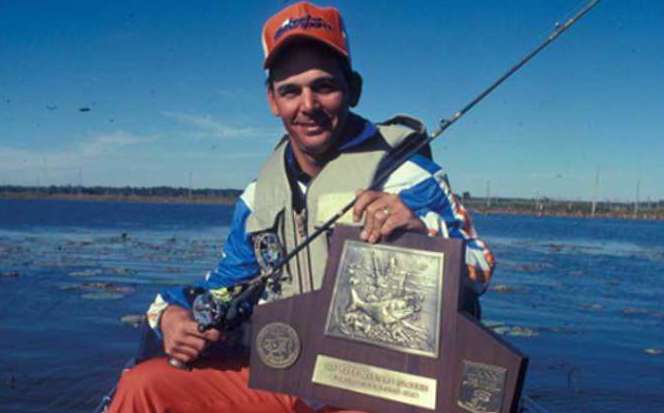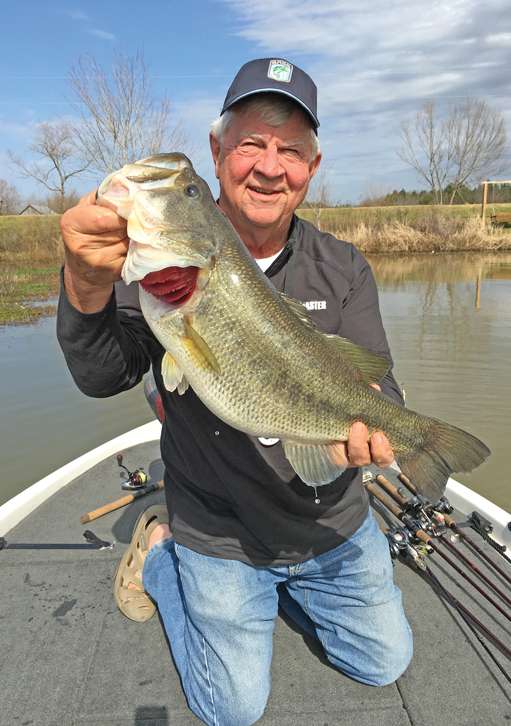
Next week will mark my 40th consecutive GEICO Bassmaster Classic presented by DICK’S Sporting Goods. Each has been memorable, but none stands out more vividly than my first — the 1978 “BASS Masters Classic,” as it was called back then, at Ross Barnett Reservoir, Miss.
That one was special in part because it was my first and because I was an outsider at the time. I covered the event for my newspaper, the now-departed Houston Post, and that enabled me to absorb every experience.
I went to work for B.A.S.S. the following year, but in the fall of 1978, I was a rookie outdoor writer attending my first world championship.
To a B.A.S.S. employee involved in making the Classic happen, the week is a seven-day stress fest. Media observers had no obligations but to wake up early to go fishing and to make it to dinner on time. We were treated like honored guests at a lavish party.
B.A.S.S. founder Ray Scott hired a chef, Frank Martinelli, to feed us morning, noon and night. To Martinelli, cost was apparently an afterthought. Seafood night included lobster and king crab legs; my first taste of each occurred at the Classic.
Each day on the water, we observers were also participants. Believe it or not, we were allowed to fish from the back of our pro partners’ boats and weigh in our biggest bass. The heaviest “press bass” each day earned $50 per pound to the lucky journalist who caught it.
We of the fourth estate were barely tolerated by Classic competitors who were trying to make names for themselves in what was already the biggest event in sportfishing. Looking back on those times, I don’t blame them. The level of competition from the back of the boat likely had an effect on the outcome.
My first partner had no such handicap. Ricky Green, the pride of Arkadelphia, Ark., was one of the top sticks on the tournament trail from the early days, and I felt special to be paired with him on a practice day. I also figured his fish-finding abilities gave me good odds of earning some of that media money. Fishing a line of stumps, Green was grazing the wood with a white spinnerbait when suddenly a solid bass tried to take the bait away from him. He boated the 2-plus pounder and then fired a cast to the same spot. A twin of the first fish latched on.
Green turned on the troll motor to ease us away. As I wound up to cast to the same stump, I was already thinking about how to spend my $100 prize. “Don’t throw there!” Green said without even turning to see whether I was about to cast. “I might need those fish tomorrow.”
Larry Nixon was my next partner. By then I was beginning to realize that I could gain a lot more by observing the pros’ moves than by trying to match them. I put up my fishing rod and studied the young gun from Toledo Bend as he picked apart stump flats and creek channels in search of bass. Nixon had just that year won B.A.S.S. Champs, a Classic-like tournament of champions, and he would soon become the tour’s first “Million Dollar Man.”
I feel honored to have spent days at the Classic riding with those two legends of the sport. However, the real memory moment occurred at the end of the final round of fishing.
Bobby Murray had just won his second Classic trophy, and by the time I dictated my story to the rewrite desk back in Houston, I had missed the bus back to our hotel in Jackson, Miss.
I crowded into the backseat of a rental car with B.A.S.S. staffers as Ray Scott slipped into the driver’s seat. He was celebrating a milestone event. More than 3,000 people had crowded the shoreline to watch the final weigh-in, which Scott had turned into something of a festival. The day before, he had challenged the homemakers in the crowd to enter a pickle-canning contest, with him as the judge.
The response, and the enthusiasm of the weigh-in crowd had him dreaming out loud as he drove back to town. He envisioned indoor, drive-through weigh-ins. He described fishing fans lined up to attend a boat-and-fishing show to be held in conjunction with the Classic. People would get up early each morning to watch the anglers take off for a day of fishing. In essence, the Classic would become a week-long reunion of B.A.S.S. members and a showcase for competitive bass fishing.
About that time, Scott looked in the rearview mirror and discovered a reporter had hitched a ride.
“You can’t print that!” he declared.
“I won’t,” I promised. I didn’t make that commitment because he ordered me to. I decided not to write about Scott’s plans because they were — I thought — so outlandish.
A bass tournament with an indoor weigh-in . . . arenas filled with fans applauding for their heroes . . . fishing families crowding the aisles of a Classic “expo” to check out the latest lures and tackle . . . who would believe that could ever happen?

